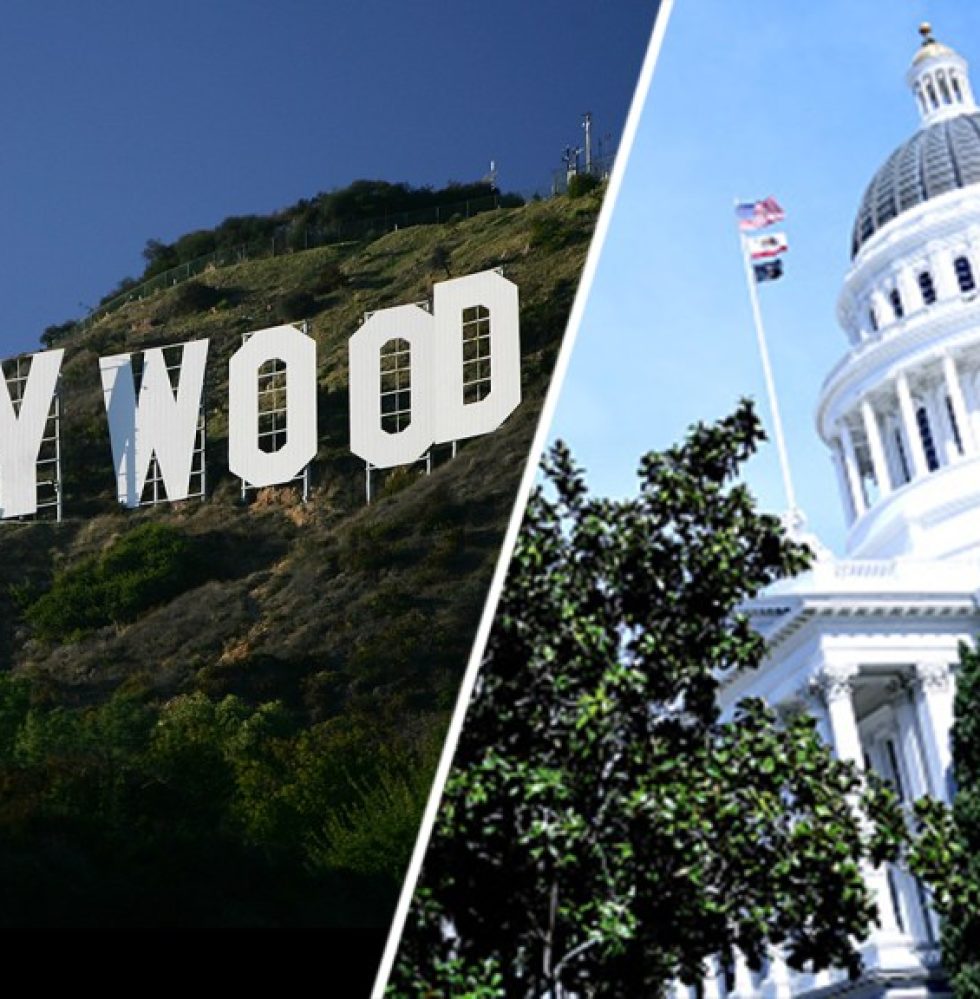
California lawmakers have about one week left to lock in the state’s annual budget with billions of dollars of funding decisions still to be made. Among them is Gov. Gavin Newsom’s proposed expansion for the Film & TV Tax Credit Program — and some prominent filmmakers are asking legislative leaders for support.
Earlier this month, the Legislature passed SB630 and AB1138 with provisions to amend the program, but the bills were missing key language allocating $750M annually to more than double the funding for these incentives. That language would’ve codified the annual allocation, which is now left up to negotiation within the budget.
Still, Newsom and several other state lawmakers including Sen. Ben Allen and Assemblymember Rick Zbur have sought to ensure that line item remains in the budget as legislative leaders contend with a projected $12B deficit.
The Legislature was unwilling to accept the deep cuts to social services Newsom proposed to bridge the gap and, while a formal vote was held on June 15, the final budget remains in flux ahead of the July 1 start of the fiscal year.
The production community is still doing what it can to illustrate the dire need for this additional funding to help revive California’s film and television industry. Deadline understands that lawmakers recently met with several filmmakers, including Patty Jenkins, Cord Jefferson and Jonathan Nolan.
The trio traveled to Sacramento this month to plead their case, encouraging support for the $750M. Nolan described his meeting with lawmakers as “incredibly positive,” noting “how thoughtful and how complicated the decisions they’re making are, but how generous they have been in spending some time with us, to come and listen to us and look at what we’re seeing and understand.”
Jenkins spoke similarly to Deadline of her experience with legislators: “It is looking very good. Legislators are finally realizing that this money needs to happen if we want to save our city. While there’s a huge need to slash the greater budget that we fully respect, Sacramento is open to discussing the revenue can be generated by the film and TV industry, and that would be lost if it collapses and the state loses a trillion dollar business, which is on the brink of happening.”
State lawmakers were also welcomed to the set of Fallout, which relocated to California for Season 2, with the hope that pulling back the curtain on the benefits of having high-powered productions local, Nolan said.
“It’s not all movie stars and moguls sitting around playing cards. It’s a large group of incredibly hard-working and talented Californians. What we’re able to do together on set is a very special thing, and one that looks quite similar to how it looked 100 years ago,” Nolan explained. “I think it gave all those legislators a real sense that this isn’t hype — that there is this incredibly robust, incredibly vital industry that has supported generations of Californians, and we’re the best at it in the world. Letting that slip away would be an incalculably bad decision.”
He tells Deadline that it was a creative decision to move the production from Brooklyn to Santa Clarita, given the locale for Season 2, requiring 70+ trucks to transport the massive sets across the country.
Figuring out the financials to feasibly shoot in California was “enormously complicated” but ultimately illustrated the larger issue facing the state’s production industry at this moment, he said.
“This year, we’re kind of the only ones working at this scale of production in California. That was shocking to me. It’s a big show. I’m very proud of the show,” he tells Deadline. “There should be other shows, other movies of a similar scale, and there are not. And that is really, really frightening.”
Hoping for a change in attitude up in Sacramento, Jenkins said that she and fellow filmmaker colleagues met with those lawmakers “who previously had not supported the film and TV tax credits until recently.”
“There was a misunderstanding in Northern California of what was going on down here. The tax credits were always seen as a giveaway to fat cats and big wigs. But they’re realizing that its much bigger than that. It’s an entire industry of people at every level, the vast majority of which are not the top 1%,” she emphasized.
Jenkins also emphasized the need for a federal tax credit, in addition to state, in order for tentpole feature productions to remain in California.
“In the U.K., for example, there is no federal and state, so a 40% tax credit is on every pound spent. Therefore, if we want to become competitive with overseas filming and the tentpole industry, federal would have to step up with similar incentives,” she said.
She isn’t alone in her call for federal intervention. Currently, individual states are also competing with international territories that also offer lucrative tax incentives to local productions. California currently allocates $330M annually. New York recently increased its film and TV tax credits to $800M a year.
So far, the federal government has not engaged with the idea of a tax incentive. However, the Trump administration did briefly propose a controversial 100% tariff on films made abroad to discourage runaway production.
The film and television community, particularly in Los Angeles, has been sounding the alarm on runaway production for many years. Newsom first proposed the $750M expansion in October as calls for action increased amid the global production contraction. Calls which were only made louder by January’s devastating wildfires in Los Angeles.
“With production people of every level having to move away to other states because there isn’t any work here, and the exodus of industry folks of every level, we are on the brink of losing Hollywood’s foothold in the industry completely,” Jenkins said. “Prop houses, costume houses, camera house and support of all kinds are shutting down, while they are building that same infrastructure elsewhere, so we are at a tipping point. If we don’t do something to save Hollywood, we could lose it forever.”
Amid this budget debate, the California Film Commission awarded $96M in tax incentives to 40+ films on Monday. Perhaps reflecting the changing finances and current geographical realities of the industry, 43 of those 48 projects are independent films, with many working with budgets of $10M or less.



